국제기구 2024
인재양성 캠프
인천광역시교육청동아시아국제교육원 2024. 9. 5 ~ 10. 17 (목) (목)

- António Guterres, 12 Aug 2023 -




프로그램
프로그램
프로그램
10. 17. (목)

인천광역시교육청동아시아국제교육원 2024. 9. 5 ~ 10. 17 (목) (목)

- António Guterres, 12 Aug 2023 -




10. 17. (목)
유엔아태경제사회위원회(UNESCAP)
유엔거버넌스센터(UN POG)
유엔아태정보통신교육원(UN-APCICT)
동북아환경협력프로그램(NEASPEC)
세계선거기관협의회(A-WEB)








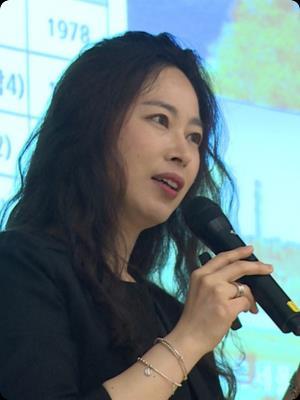




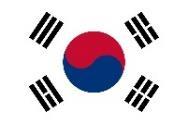

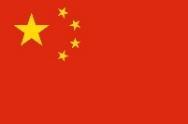


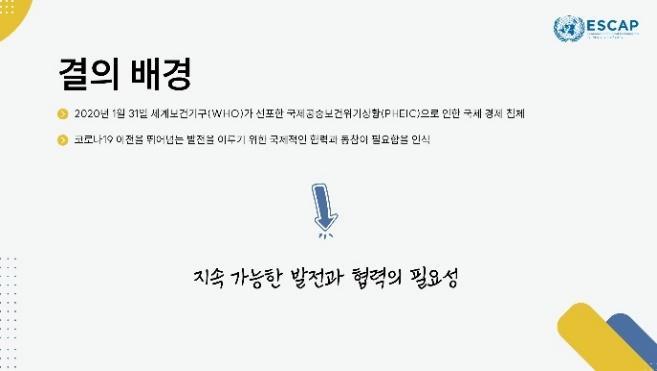

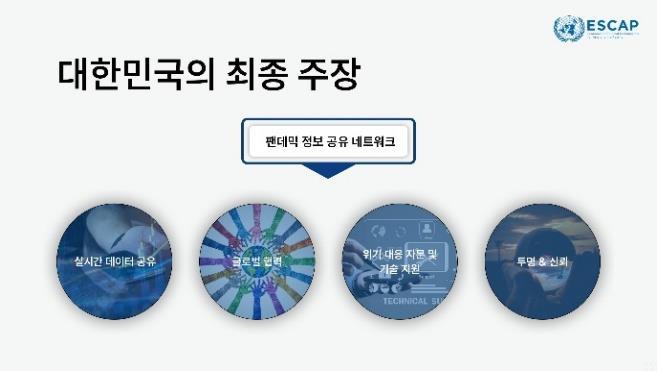

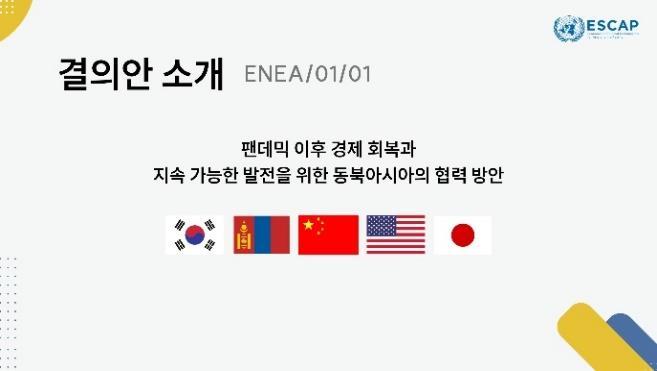
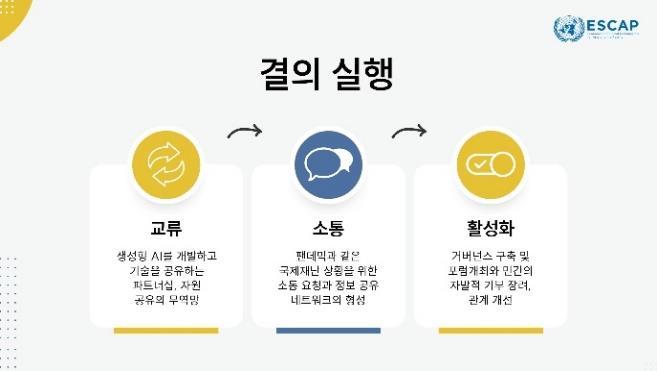

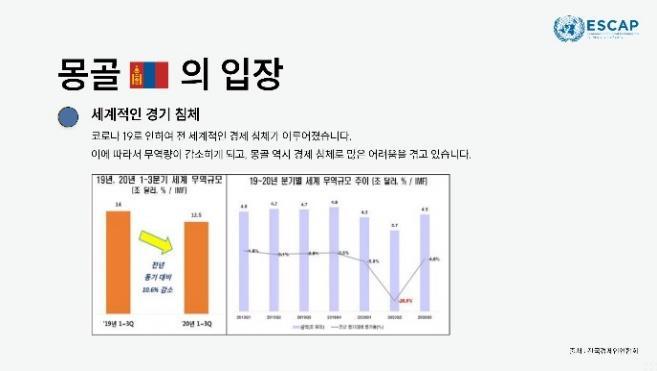

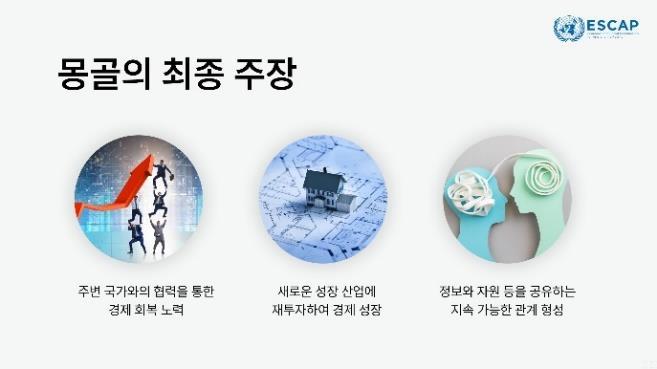

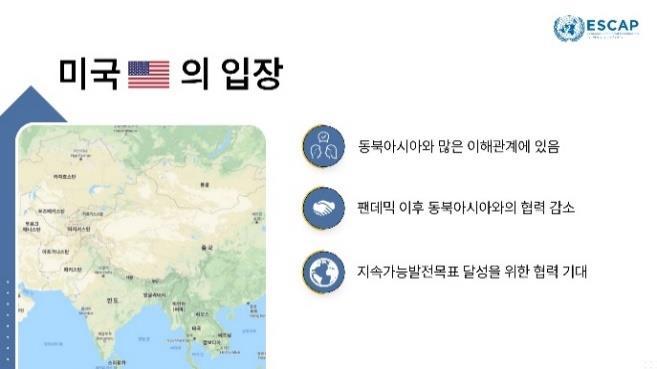


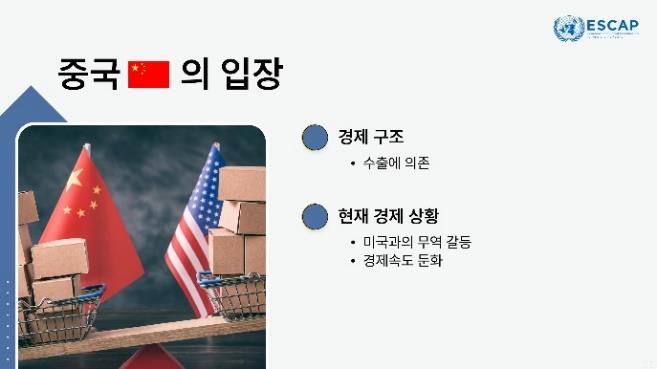

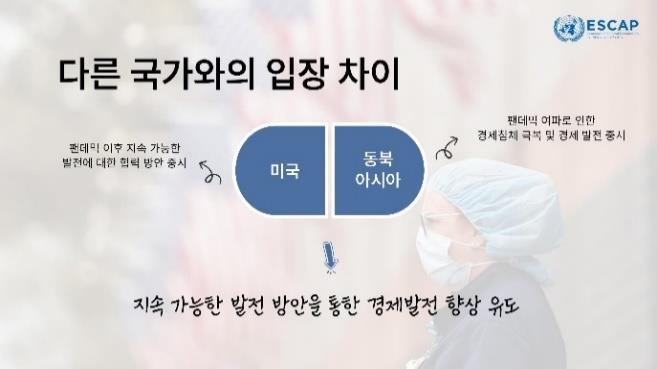
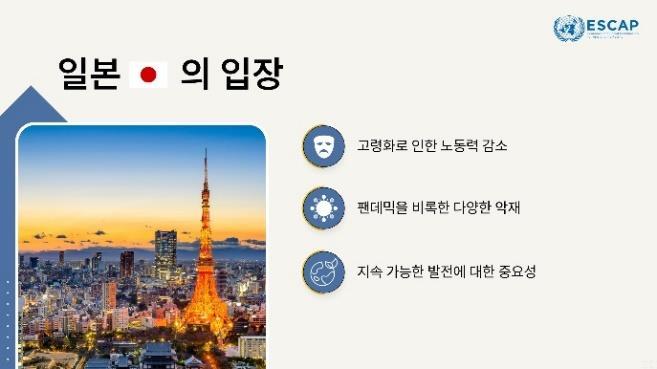

유엔거버넌스센터(UN POG)





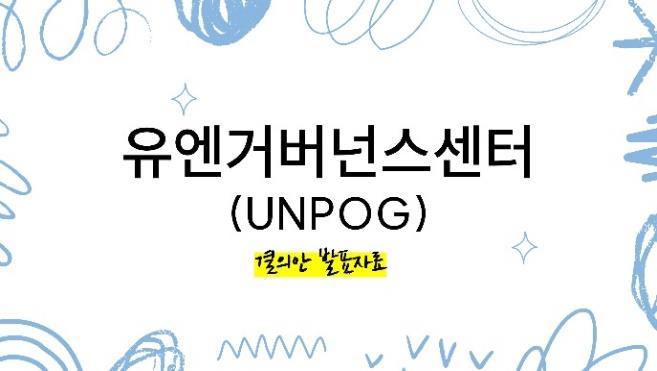
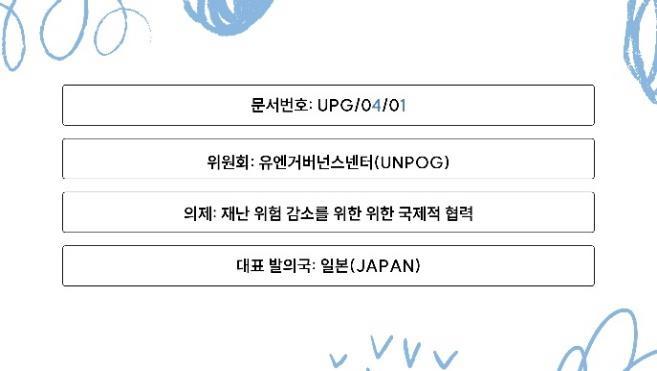
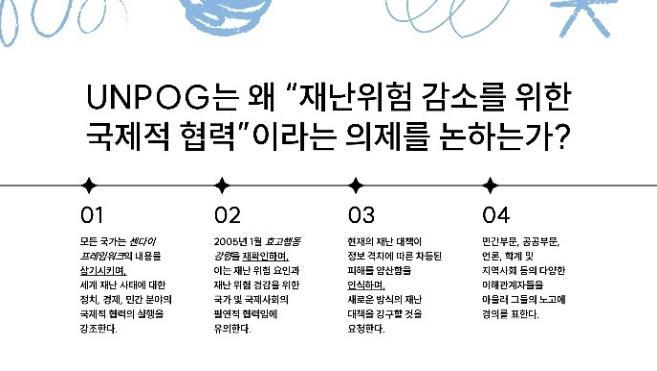



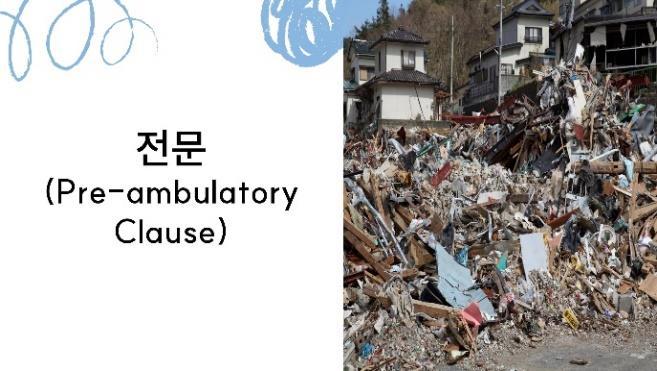

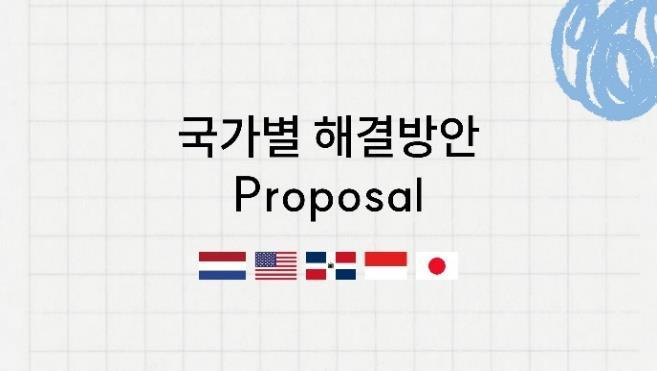


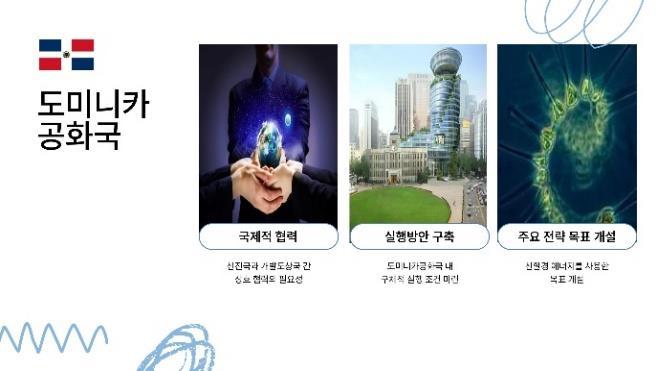



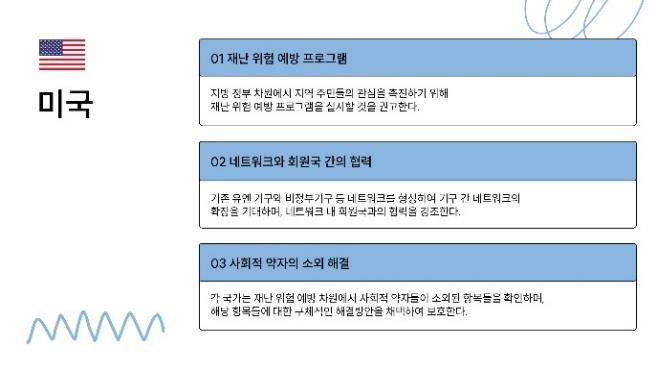
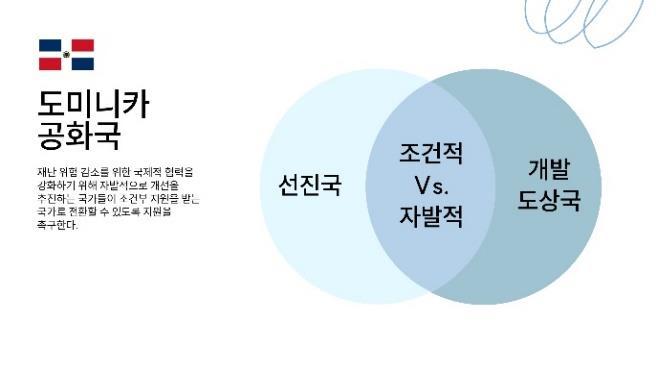

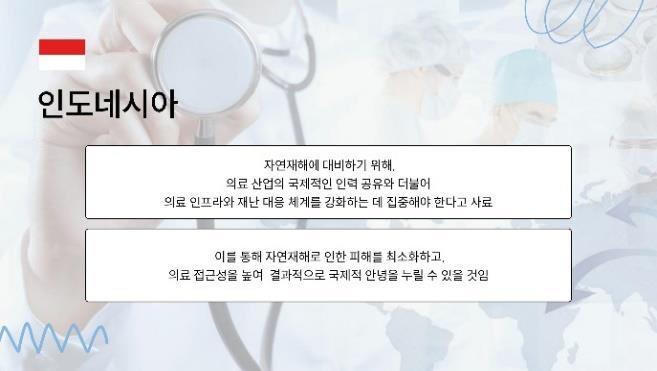
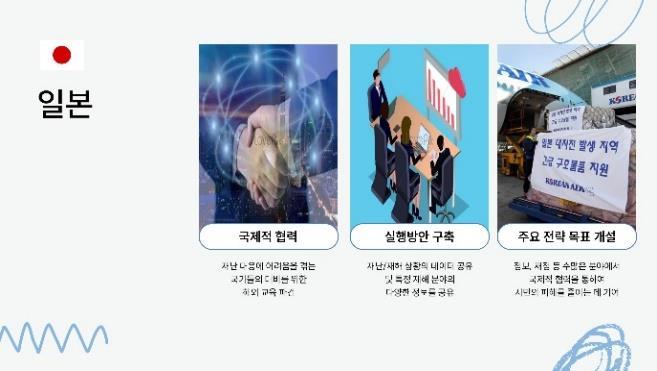

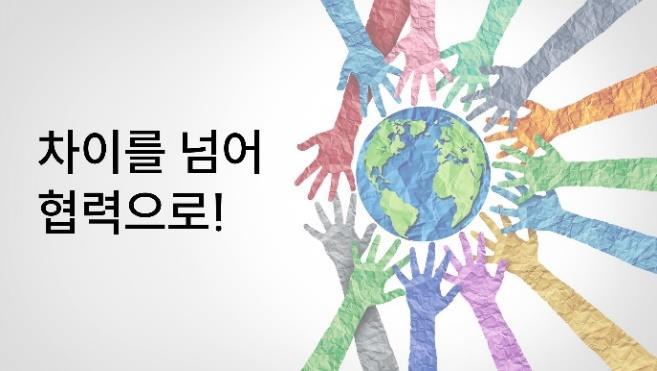
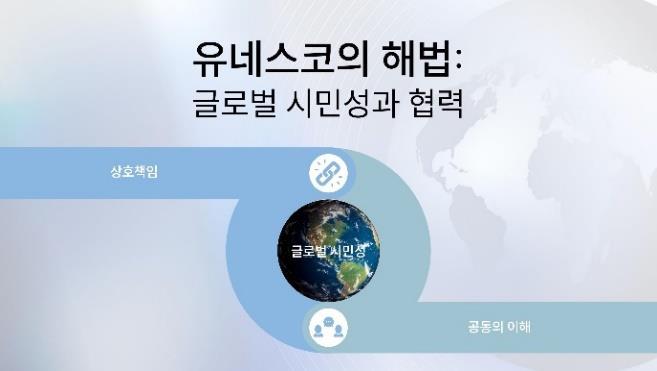






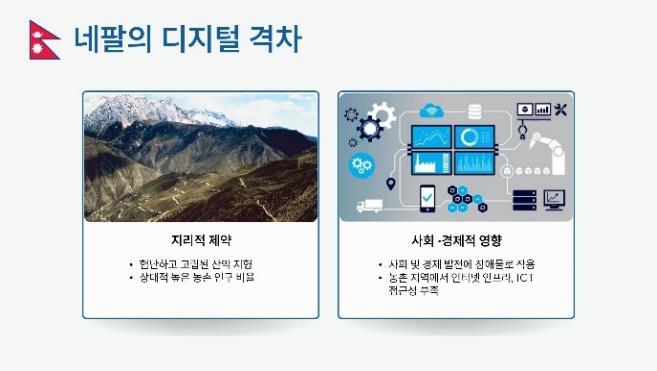
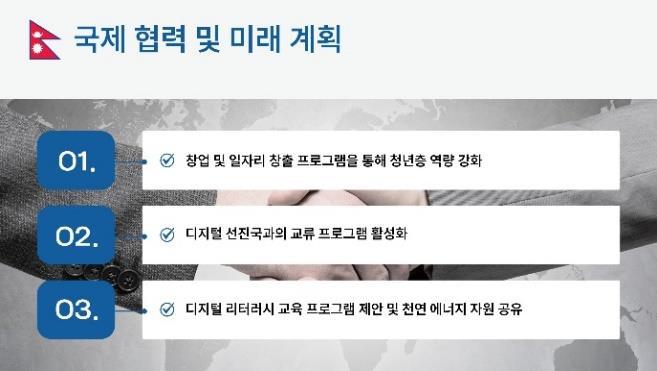

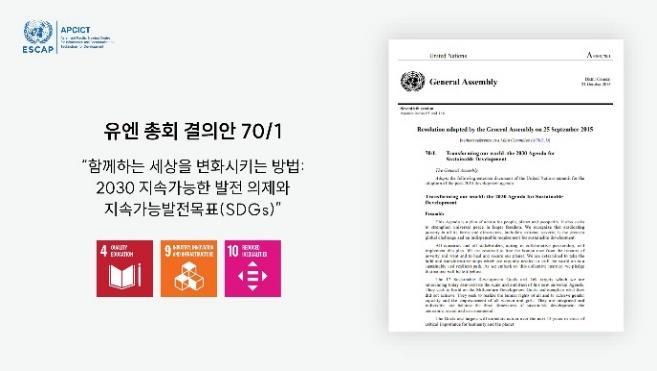
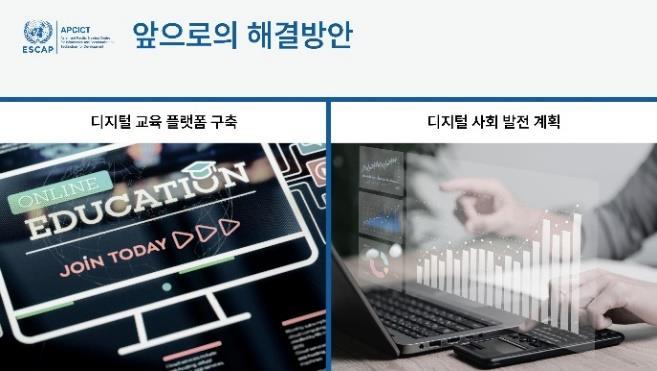
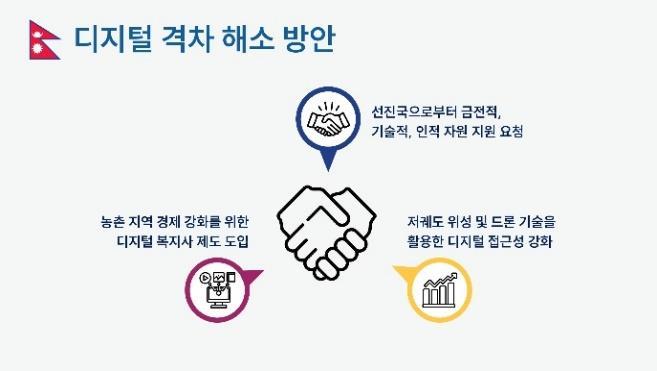



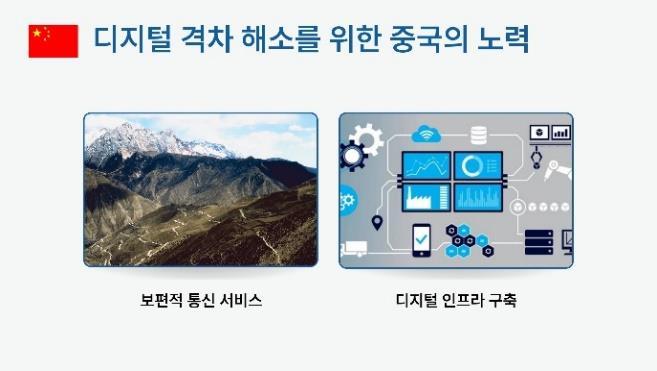

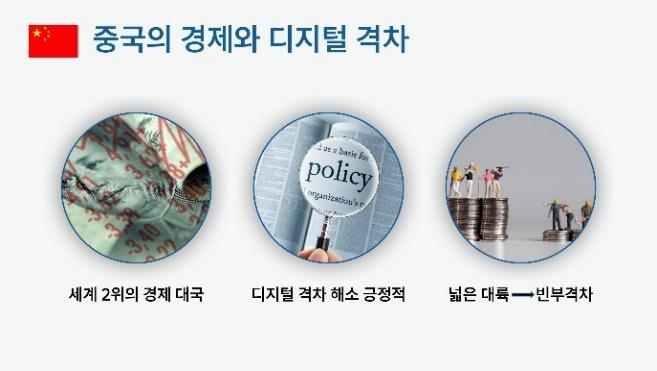
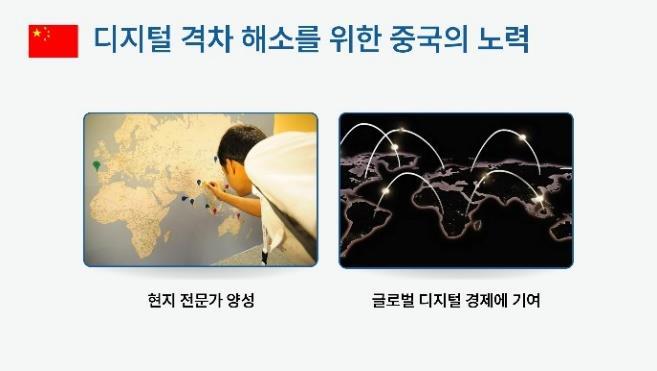



Carbon emissions refer to situations where carbon gases, such as carbon dioxide, are emitted into the atmosphere for various reasons, such as using fossil fuels. With global industrialization, the use of fossil fuels increased, and carbon dioxide emissions also increased accordingly. However, the number of forests and trees to purify them continued to decrease, resulting in a loss of balance. Natural disasters are occurring throughout the planet. Nepal's Prime Minister Sher Bahadur Deuba says that even Nepal's very small carbon emissions are very badly affected by them.
Nepal is a country that accounts for 0.11% of global greenhouse gas emissions in 2022, and its contribution to global climate change is minimal. However, dependence on biomass energy is gradually decreasing and the proportion of fossil and new and renewable energy is slowly increasing. In 2021, Nepal swore to achieve net-zero emissions by 2045. This delegate will expand the use of clean energy, improve energy efficiency and expand carbon absorption through net-zero emissions. Nepal is also trying to apply new technologies to replace fossil energy and promote the transition to bioenergy. To this end, Nepal requests financial support from the international community for policy development, social transformation and technological development.
Nepal's carbon dioxide emissions rank 93rd out of 148 countries, and its annual energy consumption is significantly low. Also, there are so many renewable energy resources which are firewood, agricultural residues, livestock manure, hydroelectric power, solar energy wind power, etc.
Therefore, several policies in Nepal utilize these abundant resources. A policy called Nepal's Long-term Strategy for Net-zero Emissions 2021 has been implemented. This is Nepal's strategy for net zero emissions and proposes increasing the use of clean energy and renewable energy and expanding carbon absorption to achieve zero net carbon emissions by 2045. In addition, 264 hydroelectric power development projects approved for construction by the Nepalese government are being promoted.
Nepal needs international bonds to cooperate with international organizations. Our country has been struggling with financial problems that they cannot solve themselves. According to the Ministry of Foreign Affairs, Nepal’s financial situation is growing but it is very weak with growth rates of 5.72% and 2.92% since 2013. It is growing at 0.2% and 7.74%. In 2015, the earthquake caused the economy to slow down. For this, Nepal asks the international community for financial support for policy development, social transition, and skill development.
One way to reduce carbon is to take advantage of Nepal's geographic feature of forests. About 40% of Nepal consists of forests and trees. This could help reduce the country's carbon footprint. Expand the tourism industry targeting ‘green tourism’ and use some of the profits for energy development.

Carbon emissions mainly refer to greenhouse gases released into the atmosphere in the form of carbon dioxide. These emissions cause the greenhouse effect and lead to climate change problems. Countries that emit the most carbon include China, the United States, and India. There is a conflict between developed countries, which focus on both economic growth and solving environmental issues, and developing countries, which prioritize economic growth over environmental improvement.
Our country expresses deep regret about this issue and is determined to solve the carbon emission problem as soon as possible. However, due to China's industrial structure, an
immediate reduction in carbon emissions is difficult. Therefore, we plan to address the problem by gradually establishing policies and setting carbon emission reduction goals.
The international community has held various discussions to address carbon emissions. Notable examples include the 2015 Paris Agreement and the goal of carbon neutrality by 2050. Our country, as a party to both the Paris Agreement and carbon neutrality efforts, has developed policies to reduce carbon emissions and set long-term goals. As the world's largest carbon-emitting country, we take responsibility and are working hard to reduce emissions. Additionally, our climate policies have been positively received internationally, and we are continuing to make efforts to solve the carbon emission problem.
First, China is implementing a carbon trading system. China has launched the world's largest carbon trading market, with about 2,000 companies participating and trading around 4 billion tons of carbon emissions. China is also investing in carbon capture and storage (CCS) technology and clean energy technology to find technical solutions for reducing carbon emissions. In addition, the country is promoting industrial policies to reduce high-carbon industries and shift to low-carbon industries. China is especially strengthening its efforts to reduce emissions in manufacturing, construction, and transportation sectors.
Update the resolution to reflect China's current situation, including the latest carbon emission data and recent policy changes. For instance, incorporate China's 2030 peak carbon emission target and 2060 carbon neutrality goal. Additionally, outline specific action plans and steps to achieve reduction targets, such as investments in renewable energy, improvements in energy efficiency, and development of clean technologies.
Set annual carbon emission limits and provide tax reductions or financial support to companies that either stay within these limits or significantly reduce their emissions, creating an environment that encourages businesses to lower their own carbon footprint.

Carbon emissions refer to the release of carbon gases, such as carbon dioxide, into the
atmosphere. These emissions occur for various reasons, including the production and use of fossil fuels, which contribute to phenomena such as the greenhouse effect. The increasing use of fossil fuels as the world industrializes is a major driver of these emissions. Additionally, as forests and corals important carbon dioxide absorbers shrink, the balance is disrupted, leading to higher levels of carbon dioxide. We rely heavily on power plants for electricity, and these plants emit a significant amount of carbon dioxide. For instance, 40% of carbon dioxide emissions in the U.S. come from electricity generation, with thermal power contributing 93% of this amount. The situation is similar with car fuels. Although there are many eco-friendly cars available today, such as electric and hydrogen vehicles, the majority of cars still use gasoline. Burning gasoline releases a substantial amount of carbon dioxide. In fact, electric vehicles accounted for only 18% of global car sales in 2023. Carbon dioxide emissions play a major role in global warming, making up 80% of all greenhouse gases. The seriousness of global warming has led to 195 countries signing the Paris Agreement in 2015. This international accord aims to limit the global average temperature increase to well below 2 degrees Celsius above pre-industrial levels, and ideally to 1.5 degrees Celsius.
New Zealand is very focused on tackling climate change for a better future. Even though the country faces some economic difficulties, the government is working on ways to cut carbon emissions while still encouraging economic growth. They are doing this by investing in renewable energy and using technologies like Carbon Capture and Storage (CCS). New Zealand aims to cut greenhouse gas emissions by 50% from 2005 levels by 2050, in line with the Paris Climate Agreement. Recently, some government policies have been changed temporarily. The current government is trying to boost economic growth by easing some environmental rules, allowing more oil and gas exploration, and relaxing rules on agricultural emissions. This has led to criticism from environmental groups, who worry that these changes might harm long-term sustainability. Despite these issues, New Zealand is still pushing forward with clean energy and new technologies like CCS to help cut emissions and make the transition to a low-emission economy smoother.
In 2016, the Paris Agreement was adopted globally to reduce carbon emissions to prevent global warming. The agreement aims to limit the increase in the global average temperature to below 2°C and to pursue efforts to keep it below 1.5°C. New Zealand aimed to reduce emissions by 50% by 2030. However, New Zealand's carbon emissions continued to rise. Due to reasons such as economic recession, New Zealand postponed its plan to reduce
carbon emissions until 2050.
New Zealand has set a goal to reduce greenhouse gases by 50% by 2030 compared to 2005 levels in its second emissions reduction plan. This goal is an essential step to minimize the effects of climate change and pursue sustainable development. One key element of the policy is improving energy efficiency. The government plans to implement programs to optimize energy use in buildings and industries. Additionally, it aims to increase renewable energy sources like solar and wind power to reduce dependence on fossil fuels. In the transport sector, efforts will focus on improving public transport systems and promoting electric vehicle use to lower greenhouse gas emissions. The plan also emphasizes cooperation with local communities, taking residents' opinions into account to enhance policy effectiveness. Regular monitoring and transparent reporting are important to verify the policy's impact and gain public trust. This comprehensive approach will be a significant step toward a sustainable future for all.
Our team would like to build partnerships with more countries to address carbon emissions. New Zealand focused on reducing carbon emissions caused in many fields in very innovative ways. However, the fact that the plan of New Zealand only emphasizes domestic emission. Since carbon emissions have a global impact, it is essential for countries to work together and cooperate closely in addressing this issue. We think New Zealand needs to make an agreement that not only regulates the amount of carbon emission but also includes provisions for international collaboration and shared commitments with other countries.
One potential solution is the implementation of a carbon tax, which could be introduced as a part of international agreements. This tax would target carbon emissions from various sectors, encouraging industries worldwide to adopt lower-carbon technologies and reduce energy consumption. By raising the cost of carbon-intensive activities, a carbon tax would incentivize the shift toward renewable energy sources and support the development of alternative energy technologies. Aligning this approach with the goals of the Paris Agreement limiting global temperature rise to well below 2°C could help drive global emissions reductions and foster international cooperation on climate action.
Association of North-East Asian Subregional Programme For Environmental Cooperation,
Acknowledging the urgent need to combat climate change as outlined in the Paris Agreement, which calls for significant reductions in global carbon emissions to limit the increase in global average temperature to well below 2°C above pre-industrial levels,
Recognizing the unique environmental challenges faced by the North-East Asian region, including rapid industrialization, urbanization, and increasing energy demand, which contribute to higher carbon emissions,
Recalling the outcomes of the NEASPEC environmental cooperation framework, which promotes multilateral dialogue and cooperation among member states in addressing transboundary air pollution and reducing greenhouse gas emissions,
Emphasizing the role of renewable energy development, energy efficiency improvements, and the adoption of sustainable technologies in reducing the region’s carbon footprint and fostering green growth,
Highlighting the importance of international cooperation in developing carbon capture and storage (CCS) technologies, enhancing energy interconnectivity, and fostering green innovation across borders to mitigate climate change,
Reaffirming the commitment of NEASPEC member states to support the United Nations Framework Convention on Climate Change (UNFCCC) and its goals, while pursuing regionally specific strategies that address the unique challenges and opportunities in NorthEast Asia,
Thus, NEASPEC urges member states to take the following actions to address climate change and promote sustainable development.
Encourages all Member States to adopt region-specific renewable energy goals, similar to Japan's goal of achieving 36% renewable energy by 2030, while providing incentives for industries to shift towards cleaner energy sources, supported by policies like Japan’s FIT (Feed-in Tariff) system;
Calls upon developed countries, such as the United States and Japan, to invest in clean energy projects in developing countries, fostering partnerships that include:
a. Technology transfer for solar, wind, geothermal, and hydropower projects, with a focus on regions such as Nepal with substantial renewable energy potential,
b. Financial support and capacity-building programs aimed at scaling renewable energy production, as per the proposals by Nepal for cooperation in hydropower development;
Supports the creation of joint renewable energy projects between nations, especially between countries with natural resource limitations and those with advanced renewable energy technologies, enabling mutual benefits:
Urges the establishment of international frameworks for carbon capture and storage (CCS) technology development, supported by multilateral partnerships involving countries like China and the United States, to mitigate industrial carbon emissions while transitioning towards sustainable energy sources;
Recommends that countries implement carbon pricing mechanisms, such as carbon taxes or emissions trading systems (ETS), similar to New Zealand’s approach, to incentivize the reduction of fossil fuel use and reinvest revenues into green infrastructure, research, and the promotion of renewable energy technologies;
Encourages the global adoption of sustainable transportation and energy-efficient infrastructure initiatives, with countries like the United States leading efforts to diversify battery production and enhance renewable energy storage capacity through measures like the Inflation Reduction Act and cooperation in establishing a multilateral battery supply hub;
Proposes that all Member States commit to joint research and development (R&D) programs aimed at advancing renewable energy technologies, focusing on:
a. Breakthroughs in solar, wind, and geothermal energy,
b. Enhancing grid stability for renewable energy sources,
Encourages global collaboration to address the disproportionate burden on developing countries in climate change mitigation by offering debt relief or financial incentives for nations actively engaging in renewable energy transitions,
Supports the formation of regional and global partnerships for the recycling and reuse of energy infrastructure components, particularly batteries and solar panels, ensuring that countries like the United States and China spearhead efforts in creating global standards for sustainable material usage in the renewable energy sector;
Requests the UN Environment Programme (UNEP) and other relevant bodies to facilitate annual reviews of carbon emission reductions and renewable energy adoption progress, with specific attention to the contributions of multilateral initiatives in fostering green technology and infrastructure growth in both developed and developing nations.
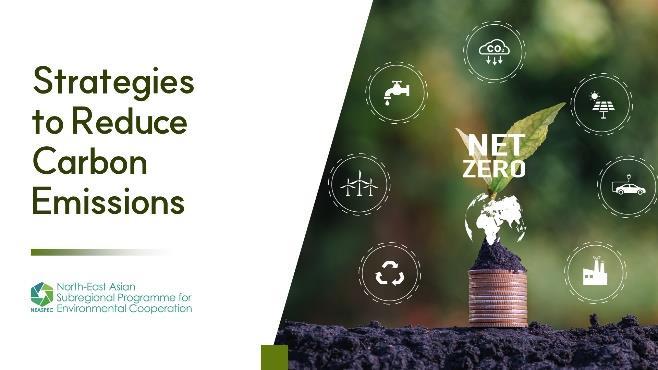

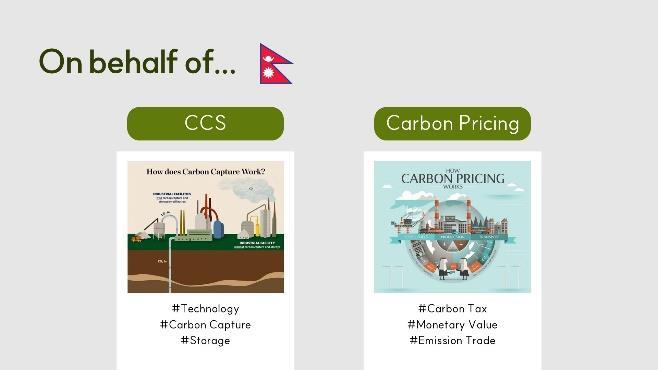
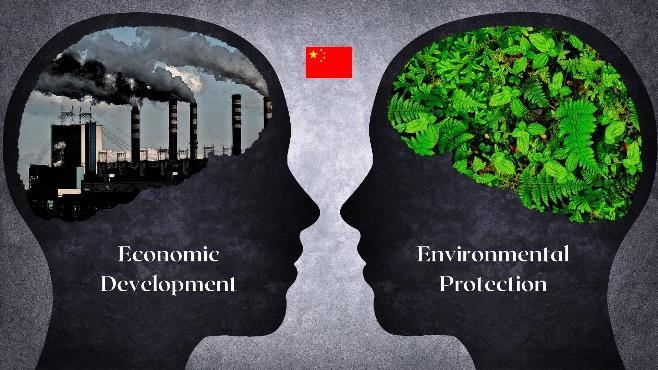
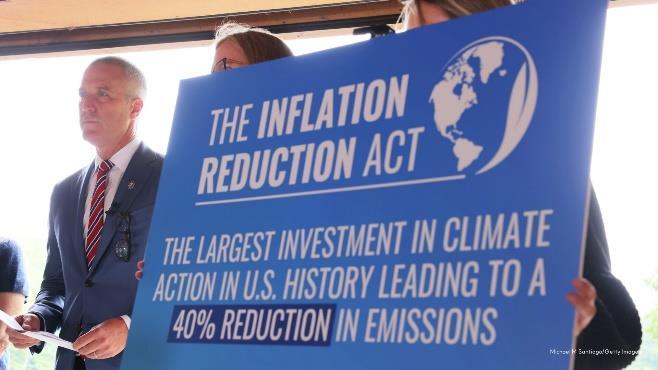
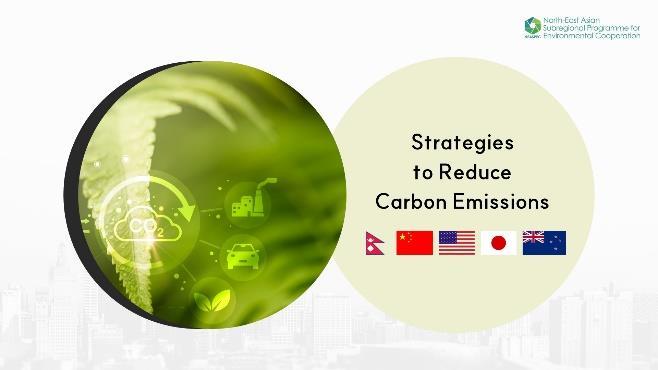

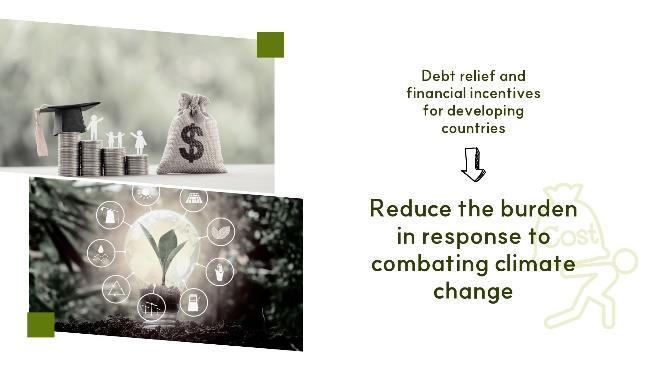
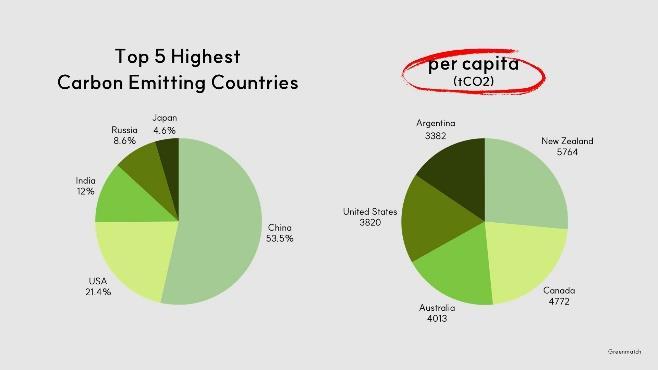


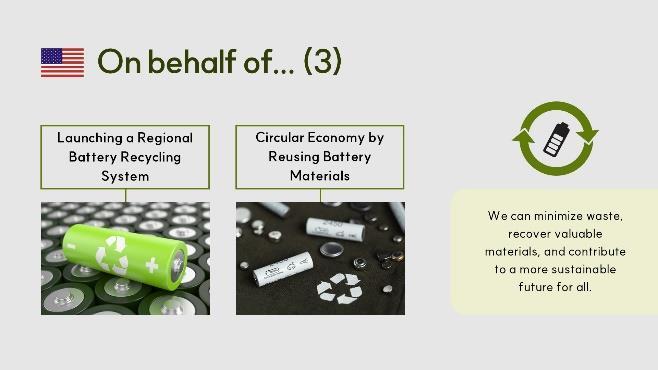


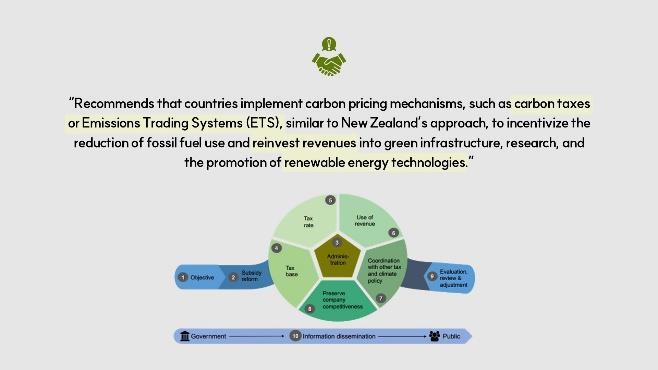
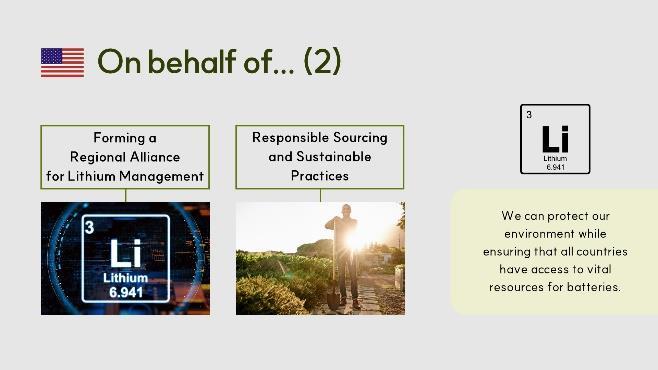


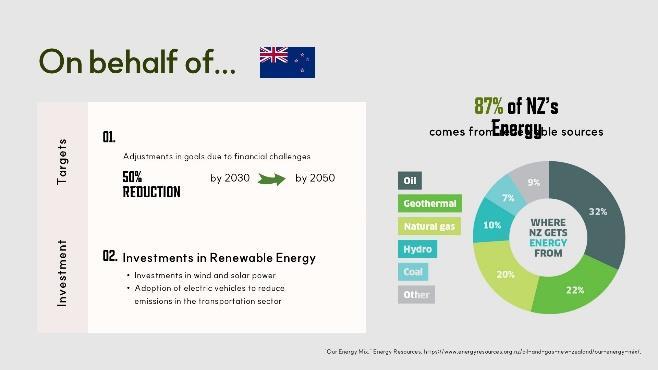



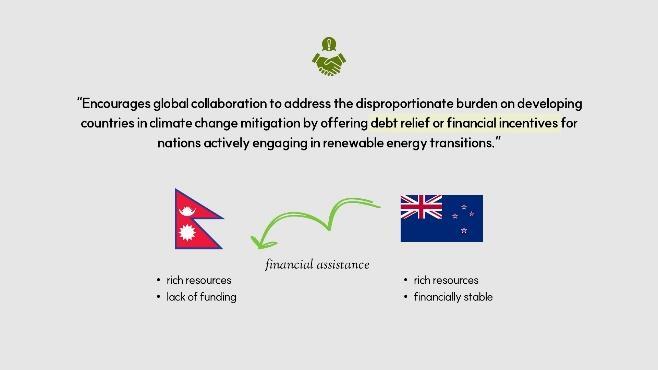
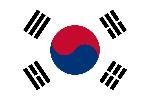
Fake news is information designed to resemble legitimate journalism, intended to mislead or influence public opinion for specific purposes. A key example is deep fakes, which involve using someone’s face to create exploitative content. In response to rising deepfake-related crimes, the U.S. government mandated watermarks on deep fake media, with penalties for removal. Major tech companies, including OpenAI and Google, have agreed to jointly address AI-generated disinformation by labeling deceptive content. The European Union also became the first to mandate watermarks on AI-generated content.
During the general election period, President Yoon stated, “There must be thorough measures to ensure that fake news and false information, especially those utilizing AI and digital technologies, do not mislead voters,” and urged proactive responses to new challenges like deep fakes. Previously, President Yoon led efforts to swiftly block manipulated
videos that spread on social media and worked with Meta (formerly Facebook), the White House, and other U.S. entities to combat fake news. Minister Park said, "Fake news and false propaganda are serious crimes that distort the choices of the people," and vowed to uncover those behind them and hold them accountable. The Prosecutor General also emphasized, “Falsehoods created through words, writings, and their spread on online platforms and social media are growing like a snowball. To prevent false information, fake news, and black propaganda from influencing election outcomes, swift fact-checking and strict accountability are essential.”
Participants of the 3rd Summit for Democracy shared the understanding that fake news and disinformation, fueled by artificial intelligence and internet bot technology, not only cause social conflict and division but also threaten the foundations of democracy. They emphasized the need for robust laws and systems to address fake news and highlighted the importance of an international response to forces attempting to influence elections across borders. Furthermore, they agreed to explore technological cooperation in developing AI and digital systems to detect and combat fake news. The government of the Republic of Korea fully supports this stance.
In 2023, the Public Official Election Act was amended in South Korea. The amendment bans the use of deep fake videos, photos, and audio related to elections during the campaign period, specifically for 90 days leading up to the election day. Violators of this law can face up to 7 years in prison or a fine of up to $37,500. South Korean generative AI company called ‘DeepBrain’ AI also announced its collaboration with the Korean National Police Agency to customize detection solutions for tracking deer fakes and responding to electionrelated crimes.
As for official opinions from the Republic of Korea so far, with the exception of the election law revision, they are somewhat abstract and superficial. More specific and multifaceted policies must be introduced, and measures must be created to more boldly request cooperation from the international community.
The first solution proposed by the Republic of Korea is strengthening cooperation within INTERPOL to respond to crimes related to fake news or creating an international organization specialized in responding to fake news. A specialized response organization must be created and electoral commission officials and IT experts from each country must be dispatched. By sharing and researching technologies to respond to various problems arising from fake news,
each country in the international community can gradually establish a democratic order together. In conclusion, it is urgently necessary for countries in the international community to cooperate with each other to create a specialized organization to respond to fake news that goes beyond simple election management.

False information or fake news, which is intentionally leaked or infiltrated by double spies to confuse the other party, can distort public opinion, obscure voters' political judgment, and instill an inaccurate image of a specific candidate or political party. This can directly affect the outcome of the election, such as fake news in the 2016 U.S. presidential election.
This situation, in which the spread of information is rapidly accelerating due to the development of digital media and social media, and the spread of false information is easily made, is one of the issues that are important internationally. In the United States, false information and fake news have emerged as important political issues since the 2016 U.S. presidential election. Social media platforms such as Facebook and Twitter have introduced various measures to prevent fake news, but this issue has emerged as a big problem in the recent presidential election as a complete solution has not yet been released. The EU is pursuing various legal and policy responses to respond to the problem of false information. In 2018, 'Code of Practice on Disinformation' was introduced, and efforts are being made to prevent the spread of false information in cooperation with social media platforms. As such, the issue of false information and fake news is receiving great attention internationally
In Germany, the problem of false information and fake news is also taken seriously. For this, Germany is implementing various solutions, one of which is the Network Enforcement Act (NetzDG). Germany, which was facing an election to the federal parliament, introduced the Network Enforcement Act (Netzwerkdurchsetzungsgesetz, NetzDG) in 2017. This law was enacted by the German government to prevent the online spread of illegal content, including false information and hate speech, under which social media platforms are required to delete illegal content within 24 hours of being reported, or they can be fined up to 50 million euros.
The law has contributed to reducing the spread of false information in Germany, but at the same time, it has been criticized for excessively restricting freedom of expression.
The German government also believes that social media platforms should take greater responsibility for preventing the spread of false information and fake news. So, it requires platforms to develop technologies that can automatically detect and quickly delete false information. Germany is making efforts to provide accurate and verified information through reliable public broadcasting and independent media. Public broadcasters ARD and ZDF are striving to strengthen fact-checking on false information and to provide accurate information to citizens
Deep fakes have received international attention for their ability to disseminate misinformation, disrupt elections, and infringe privacy. The United States has identified the potential for deep fakes to be used for political propaganda and disinformation, and has suggested laws to regulate them in 2019. It is responding by increasing platform accountability and creating technology to detect deep fakes. Following the Cambridge Analytica scandal, the EU identified deepfakes as a crucial component of information manipulation and, through its Digital Services Bill, ordered social media platforms to promptly remove incorrect material and provide warnings on deepfake content. Germany has traditionally been wary of disinformation and propaganda, and the 2020 NetzDG law mandates social media sites to rapidly delete deepfake content. Germany prioritizes privacy and personality rights, and it is aggressively combating deepfakes by developing guidelines for the ethical use of AI technology. Internationally, countries and businesses are focused on technological remedies, with Interpol improving worldwide collaboration to combat deep fake crime and the United States' DARPA creating deepfake detection technologies.
Germany is trying hard to avoid mis- and disinformation and fake news. Federal Chancellery: The primary focus of the German government has been on IT security, through the creation of “hybrid” working groups within different institutions, integrating experts from various ministries as well as intelligence services. In the Federal Chancellery, there is a working group dedicated to elections that discusses possible crisis scenarios and plans how to better protect critical infrastructure for proper transmission of the election forecast and results. Ministry of Interior: An expert group on “hybrid threats” is also meeting at the Ministry of the Interior, with employees of the Ministry of Defense and the Foreign Office. The National Cyber Defense Centre in Bonn: Since the end of last year, another working group focused
on the Bundestag elections has been active at the Bonn National Cyber Defense Centre, which deals specifically with the exchange of information on cyber threats related to the elections. Federal Office for Information Security (BSI): Just weeks before the elections, the government approved a new cybersecurity strategy for the next five years. In addition, the office has set up what was labeled a “red line” to be in touch with operators of social networks such as Facebook and Google, in order to be able to react quickly to potential security threats if necessary. A unit was also set up to detect automated bots and coordinated inauthentic behavior, and to inform the corresponding social media providers so that they can intervene. The BSI is also cooperating with the Federal Ministry of the Interior and the Federal Office for the Protection of the Constitution.
To address the issue effectively, it is crucial to provide a clear definition of deepfake technology and its various forms. This involves specifying the types of digital manipulations that qualify as deep fakes and the methods used to create them. Clear definitions and scope help in crafting precise policies and measures to combat deep fakes, ensuring that all forms of digital deception are covered and individuals, as well as democratic processes, are safeguarded.
Strong international cooperation is crucial in preventing misinformation and fake news in elections. By sharing information and effective strategies, countries can better tackle these issues collectively. The formation of a global alliance of democratic nations is proposed to monitor and quickly counteract false information. This alliance would serve as a platform for real-time information sharing and the development of joint strategies to protect elections worldwide.
One of the most effective long-term solutions to reducing the spread of misinformation is through education, enabling individuals to critically analyze the information they receive. Media literacy plays an important role in helping citizens recognize false information. International cooperation is proposed to develop educational programs and resources that promote critical thinking and awareness of digital threats. This could include integrating media literacy into school curricula and running public awareness campaigns.

Two years before Russia intervened in the U.S. in 2014, the Finland government launched a campaign to prevent fake news. As the trolling ramped up in 2015, Finland's president demanded every Finn take responsibility for the fight against false information. Finland recruited American experts to advise how to distinguish fake news and develop strategies to fight fake news, and its education was improved. As a result of these efforts, Finland ranked first out of 35 countries in a study that measured resilience to the post-truth phenomenon. However, some Finns protest that simply teaching media literacy is not enough and that many social media companies must work more to prevent the spread of fake news. Recently, Finland is winning the war on fake news because other countries are learning about Finland's ways and implementing policies.
Finland teaches people about media literacy. In Finland, teaching media literacy adopted a national goal in 2013; it campaigned for teaching how to differentiate fake news or information. For example, media literacy education is conducted in schools. In addition, students read news and discuss the purpose of the article, when it was written, and the purpose of writing an article. Finland gives people knowledge about such information, identifying sources, and learning how to handle it. I think it is a good way to keep people from being swayed by the media with media literacy education.
To prevent false information made with generative AI from threatening elections and democracy, Finland has focused on strengthening its capabilities, such as media literacy education and election campaigns. Literacy education methods are well-received. As society develops, media literacy education has been implemented to enable children who are unable to distinguish false information from facts and has ranked first among 41 countries for five consecutive years in a 2022 survey on resilience to fake news published by OSI.
The rule of law, multilateralism, and peaceful conflict resolution are the main goals of Finnish policy. To improve the enforcement of international law, notably in areas like environmental protection and human rights, it actively supports fortifying international organizations like the UN and ICC. Finland supports UN mediation attempts to settle disputes diplomatically and
supports the ratification of treaties like the Rome Statute. This strategy places a focus on bolstering legal frameworks and proactive diplomacy to guarantee that international law is followed everywhere.
Stronger enforcement mechanisms are required for the proposed international entity that supervises adherence to international law. Finland proposes establishing a multi-level system of responsibility that can enforce specific sanctions or diplomatic consequences on states that do not comply. In order to maintain fairness, it is important for this organization to have a rotating membership structure to prevent one group from gaining political control, and a system for automatically reporting violations, backed by continuous digital surveillance. Finland suggests establishing a Global Mediation and Arbitration Network (GMAN) to address conflicts before they turn into breaches of international law. This system would provide unbiased mediation and mandatory arbitration, decreasing the reliance on extended legal procedures. With the assistance of an online dispute resolution platform, GMAN aims to accelerate and make more affordable the resolution of disputes, particularly benefiting smaller states. It would also provide transparency by reporting to the UN General Assembly.

Honorable chairs and fellow delegates, this is the delegate of India. The advent of digital technologies and social media platforms has profoundly impacted the global political landscape. In our interconnected world, the integrity of democratic processes faces considerable threats due to the proliferation of misinformation, disinformation, and fake news.
The rapid spread of false information via digital platforms undermines public opinion, erodes trust in electoral systems, and weakens democratic institutions. Addressing these challenges requires international collaboration, as nations increasingly recognize the need for crossborder efforts to protect the integrity of elections.
The government of India recognizes the serious threat that fake news poses to national security and public order. Particularly, in such a diverse nation, fake news often causes religious and ethnic tensions, sometimes leading to violence. To prevent such incidents, India
has enforced strong regulations aimed at restraining the spread of misinformation. The Information Technology Act, specifically Section 69A, gives the government the authority to block or remove any content that might threaten national security or public order. This is especially important during election periods, where the impact of false information can be significant. In 2021, India created new rules called the Information Technology (Intermediary Guidelines and Digital Media Ethics Code). These rules make social media platforms, such as Facebook and Twitter, responsible for quickly taking action to stop the spread of fake news. Platforms like WhatsApp, Facebook, and Twitter are working with the government to limit the spread of false information, for example, by limiting message forwarding on WhatsApp and enhancing fact-checking mechanisms on Facebook and Twitter. The Election Commission of India (ECI) has also strengthened its monitoring of social media during election periods. It requires platforms to promptly remove content related to fake news and take necessary actions to ensure transparency and integrity in the electoral process. Furthermore, we are educating our citizens to identify fake news through fact-checking programs and awareness campaigns. The government-run MyGov platform offers factchecking services to help people verify the truth of the information they encounter.
India values democratic processes and is particularly concerned about fake news and disinformation that hinder democracy and peaceful processes. Recently, as international organizations such as the UN and the G20 continue to discuss this agenda, India has actively participated in discussions on cybersecurity and information ethics as part of G20. India is also strengthening information technology laws and social media regulations in line with these international social issues.
On the global stage, India is collaborating with international bodies, including the United Nations, to address the worldwide spread of misinformation. Given the global nature of social media, such international cooperation is essential for regulating fake news effectively. India stands committed to safeguarding both our democracy and the well-being of our citizens through these measures.
The Ministry of Information and Broadcasting has blocked YouTube channels, social media accounts, and websites that were found to spread fake news and information. Furthermore, at the G20 international forum, India has highlighted the dangers posed by disinformation, especially in the digital age, and has pushed for stronger regulatory frameworks to address these issues.
India’s previous efforts to address misinformation, disinformation, and fake news in elections have involved several collaborative initiatives at both national and international levels. Past solutions such as 2021 Information Technology Rules (Intermediary Guidelines and Digital Media Ethics Code) which mandated social media platforms to trace the origins of misinformation, and the Election Commission of India’s Media Certification and Monitoring Committees (MCMC), which was set up to review political advertisements and flag fake news during election periods on mainstream media, have had some effects in increasing accountability, but their inefficiencies and flaws included reactive, not preventive actions, leading to slow content removal, disinformation actors adapting to the measures using encrypted platforms, and regulatory capture, where platforms were accused of being lenient with certain political parties. There also have been the launch of independent fact checking organizations such as Alt News, Boom Live India and digital literacy campaigns to educate voters on identifying fake news backed by international bodies like UNESCO, but their impacts only reached limited audiences, with poor penetration into the rural and lesseducated population.
Reflecting on previous resolutions such as reactive measures, poor reach, and limited enforcement, India recognizes the need for solutions that are proactive, scalable, and tailored to the modern digital landscape. This delegate proposes 3 innovative solutions to further prevent misinformation, AI Driven Early Warning Systems, Global Treaty on Electoral Digital Hygiene, and Citizen Driven Fact Checking. First, the implementation of AI Driven Early Warning Systems using advanced AI algorithms which detects patterns of disinformation across platforms before they go viral by analyzing social media, encrypted messaging, and new trends in real-time, can cut the spread early by alerting authorities and media outlets. By identifying trends as they begin instead of reacting to already viral misinformation, the early warning system will allow governments to proactively address emerging threats. Next, this delegate proposes the GEDH, or Global Treaty on Electoral Digital Hygiene. This international treaty that binds countries and tech platforms to a standardized framework for curbing electoral misinformation, regulates platforms and mandates transparency to be vetted before publication. A global contract which encompasses a wide range of international media outlets is important as digital platforms (which spreads the misinformation) are accessible to all people around the world. This treaty can ensure global cooperation and reduce regulatory loopholes, including provisions for penalties on tech platforms for non-compliance. This proposal reflects on the past mistake where too heavy-reliance on voluntary contribution
between governments and platforms led to weak practical measures, and so this delegate sees that this treaty which adds legal requirement for collaboration will act as mediators and enforcers, creating true accountability. Finally, the gamification of fact-checking is a citizendriven misinformation detecting system where citizens are encouraged to spot, flag, and debunk misinformation. By giving incentives for verified correction through points, rewards, and special offers eg a chance to participate in real-life discussions on the matter with public officials, the crowdsource battle against misinformation could empower communities to selfregulate rather than solely rely on organizations, and could also counteract polarization through a positive, participatory civic engagement.

We live in an era where information is abundant. Thanks to the internet and social media, we can access information anytime and anywhere. However, this also means that false information and fake news could become significant problems. Such information can make it difficult for people to make informed decisions, and it can have a major impact, especially during critical times like the elections. Now, to speak of the difference between misinformation, disinformation, and fake news. Misinformation is false information spread without malicious intent. Disinformation, on the other hand, is deliberately intended to deceive people. Fake news refers to news that is fabricated to mislead the public. In order to combat these global challenges, countries and international organizations are working together on various fronts. Initiatives include creating frameworks for fact-checking, improving digital literacy among the public, and enhancing transparency in media and social networks. For example, platforms like the United Nations and organizations such as the International Fact-Checking Network (IFCN) are actively involved in promoting accurate information and supporting efforts to debunk false claims.
In Brazil, misinformation and fake news have been particularly concerning. The country has faced significant challenges with the spread of false information during elections. In the 2022 Brazilian presidential election, widespread misinformation, especially about the integrity of
the electronic voting system, became a major issue amplified by social media platforms. This misinformation weakened public trust and contributed to growing polarization. In response, Brazil took several important steps both nationally and internationally. Domestically, the Superior Electoral Court (TSE) created a real-time fact-checking center and partnered with other 100 organizations, including major tech companies such as Meta, Google, and X, to limit the spread of false information. Brazil also collaborated with platforms such as WhatsApp, YouTube, and TikTok to enforce measures against disinformation. Intentionally, in addition to support from the OAS, the country worked with the United Nations and participated in regional efforts to protect the integrity of the election. However, despite these actions, misinformation continued to circulate, undermining public confidence in the election process. This highlights the challenges of effectively combating disinformation and the need for stronger international cooperation to address this global issue.
Various international bodies have initiated discussions to address this issue, focusing on transparency, media literacy, and collaboration between governments and tech companies. The United Nations, the European Union, and regional organizations like the Organization of American States (OAS) have all explored regulatory frameworks and technological solutions to combat the spread of false information. From Brazil’s perspective, international collaboration has been vital. Brazil has worked with the OAS and other international partners to ensure electoral integrity. One significant initiative was the OAS mission that observed the 2018 and 2022 Brazilian elections, which played a crucial role in mitigating the effects of disinformation. Brazil emphasizes the importance of global cooperation, particularly in working with social media platforms, to curb the spread of disinformation during elections and ensure fair democratic processes.
Brazil's policies on combating misinformation, disinformation, and fake news are primarily driven by the Electoral Justice Permanent Program on Countering Disinformation, established by the Superior Electoral Court (TSE). This program emphasizes three key strategies. To Inform, Empower, and Respond. First of all, to inform is that the policy focuses on disseminating reliable, official information to counteract false narratives. Brazil uses a variety of channels, including social media, to ensure accurate information reaches the public, particularly during elections. Second of all, to empower is that the policy also includes extensive efforts in media literacy, aimed at educating citizens to recognize and reject misinformation. This involves training sessions, educational campaigns, and collaborations
with media and academic institutions to build public awareness and resilience against disinformation. Lastly, to respond is that, on the enforcement side, Brazil's policy includes the monitoring of disinformation and taking corrective actions, such as removing harmful content and banning accounts engaged in spreading false information. The TSE collaborates with tech companies to ensure swift action against inauthentic behavior online. Brazil is also currently participating in international agreements and collaborations to exchange best practices and enhance global efforts against disinformation. These policies reflect a comprehensive, multi-faceted approach to safeguard the integrity of Brazil’s democratic processes.
In reviewing past resolutions on combating misinformation and disinformation in elections, Brazil recognizes significant progress but also sees areas for improvement. One key area for amendment involves the role and responsibility of social media platforms. While previous resolutions have emphasized collaboration with these platforms, they often lack concrete enforcement mechanisms to hold them accountable. Brazil proposes strengthening these resolutions by introducing clearer guidelines for social media companies, mandating them to take proactive measures in identifying and removing disinformation in real-time, particularly during sensitive electoral periods.
To enhance accountability, Brazil suggests revising resolutions to require social media platforms to publish regular transparency reports. These reports would detail their actions to combat disinformation, including how much false content was flagged, the speed at which it was removed, and how they handled repeat offenders. Additionally, there should be provisions for imposing stricter penalties, such as fines or limitations on operations within a country, for platforms that fail to meet these standards. This would create stronger incentives for tech companies to be more diligent in preventing the spread of false information. Furthermore, Brazil advocates revisiting previous resolutions to include more detailed protocols for collaboration between national governments, electoral bodies, and technology companies. This could involve setting up real-time monitoring teams during elections to allow for quicker response times in flagging and debunking false content. By amending past resolutions in this way, Brazil seeks to ensure that international efforts are not just voluntary but backed by robust enforcement and accountability mechanisms, making global collaboration more effective in safeguarding democratic processes.
The delegation of Brazil would like to propose creating a global database of verified fact-
checking organizations, managed by A-WEB, that can work in real-time to counter misinformation during elections. This database would enable member states to rapidly deploy trusted sources to debunk false information in their local languages. Additionally, Brazil advocates for enhancing digital literacy programs, especially in vulnerable regions, to empower citizens with the tools to critically evaluate information. This comprehensive approach would ensure that international efforts are proactive, rather than reactive, in maintaining election integrity. Last but not the least, the delegation of Brazil strongly suggests the adoption of a framework for sharing best practices and technologies among member states to counter online disinformation.
Association of World Election Bodies,
Recognizing the importance of democratic processes and the need for transparent, free, and fair elections,
Acknowledging the challenges posed by misinformation, disinformation, and fake news in disrupting electoral processes and undermining voter trust,
Emphasizing the need for international collaboration in addressing the transnational nature of these threats to democracy,
1. Encourages enhancing international cooperation and partnerships between member states, international organizations, and NGOs with the purpose of:
a. Facilitating joint research on the impact of disinformation on elections and methods to mitigate it,
b. Organizing regular multilateral meetings within the framework of A-WEB to discuss emerging threats and solutions,
c. Promoting cross-border training programs for elections officials and media professionals on identifying and combating election-related disinformation,
d. Developing initiatives that protect the integrity of election information and providing citizens with trustworthy resources during election periods,
e. Establishing a global repository of best practices and case studies on election integrity, accessible to all A-WEB members, ensuring continuous knowledgesharing
2. Requests the formation of a Global Election Integrity Task Force under A-WEB, comprising experts from member states, social media platforms, and election bodies, with the mandate to:
a. Monitor online disinformation campaigns during election periods,
b. Develop international standards for social media platforms to report and combat disinformation,
c. Provide real-time assistance and recommendations to national election bodies during crises,
d. Implement an AI-Based Early Warning System using advanced AI algorithms that analyze and detects patterns of disinformation across platforms before mass-spread, cutting the virus early on by alerting authorities and media outlets,
i. AI-driven decoding of ‘disinformation trends (encrypted messaging, social media)’, gathered from data of previous misinformation happenings will allow governments to proactively address emerging threats,
e. Create a global incident-reporting mechanism where citizens, media, and election observers can report cases of suspected disinformation, allowing the Task Force to act swiftly in real-time;
3. Emphasizes the significance of education especially in regards to media literacy, ensuring that citizens can acquire skills that aid in distinguishing misleading information leaked to the Internet, refraining from over dependence on the media, and developing critical thinking skills that enable citizens to judge and analyze information objectively and logically;
4. Recommends pluralistic measures to ensure transparency and fairness in the information provided to voters during the election process:
a. Activate nationally recognized programs to provide election-related information to voters,
b. Attach the official mark to election-related content from political parties or other platforms in order to distinguish reliable information from disinformation,
c. Utilize international standards for social media platforms to report and combat disinformation to be developed and overseen by the Global Election Integrity Task Force under A-WEB;
5. Stresses the importance of respecting national sovereignty in the implementation of these
measures, ensuring that the fight against disinformation does not infringe upon freedom of speech and the press.

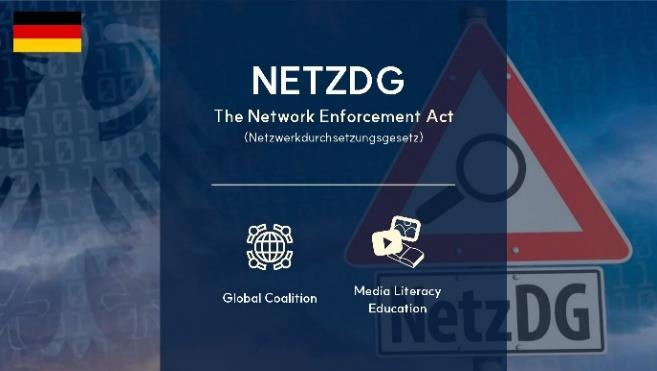
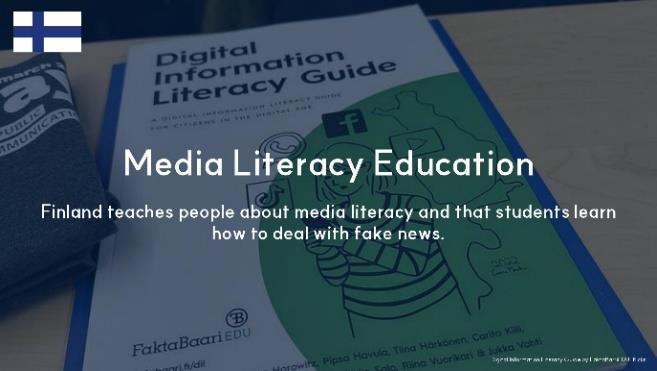

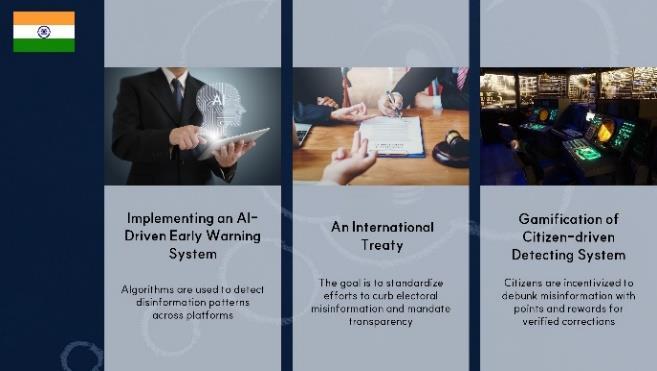


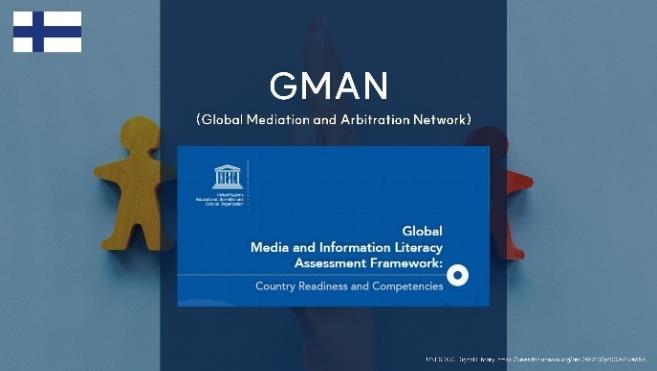
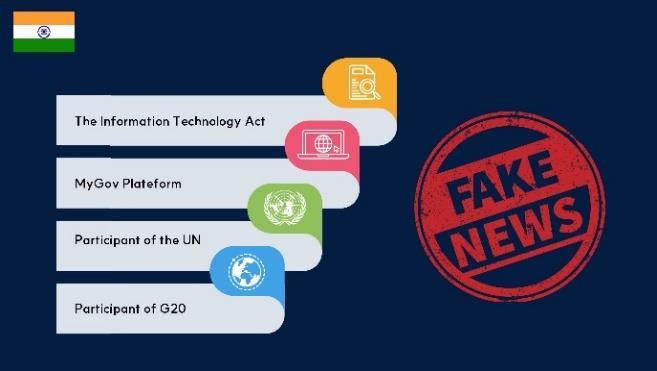

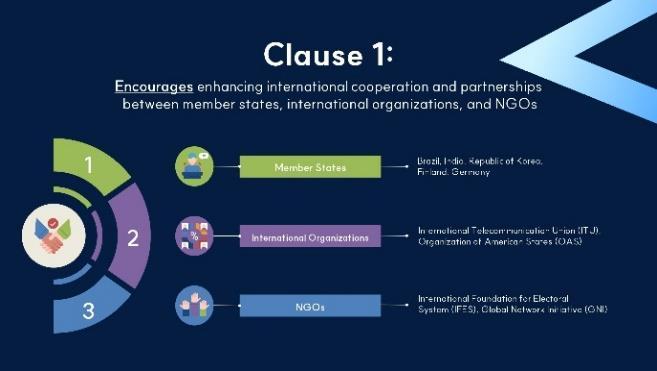


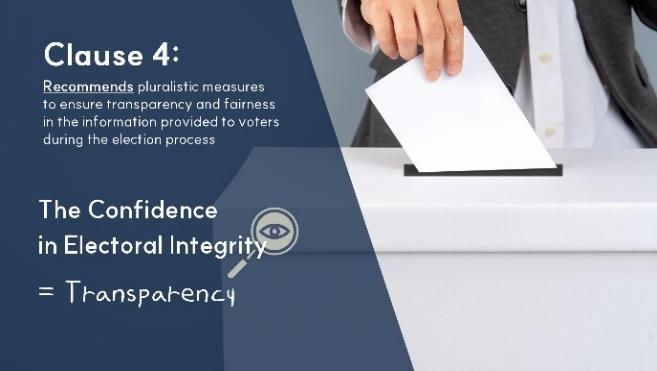

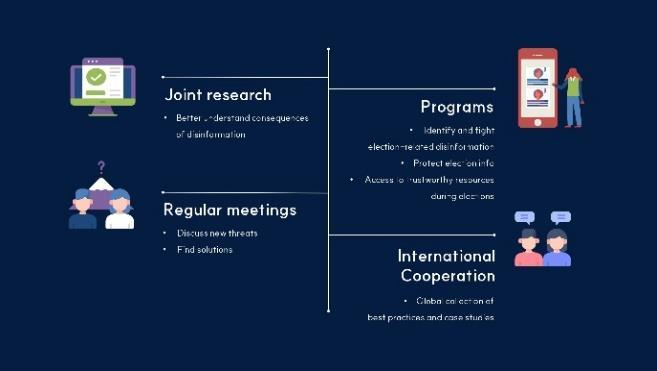
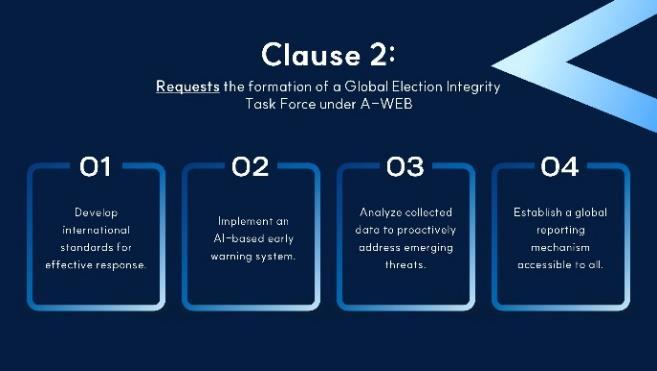

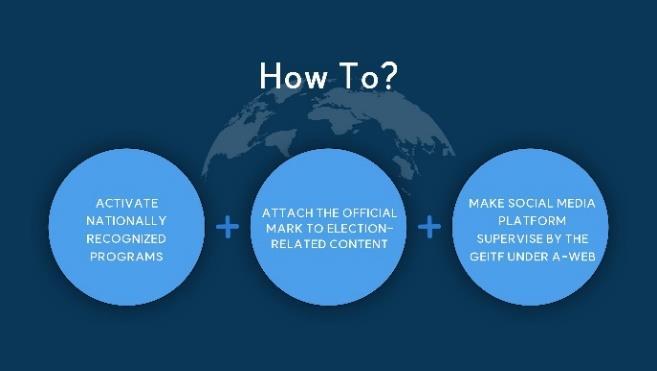
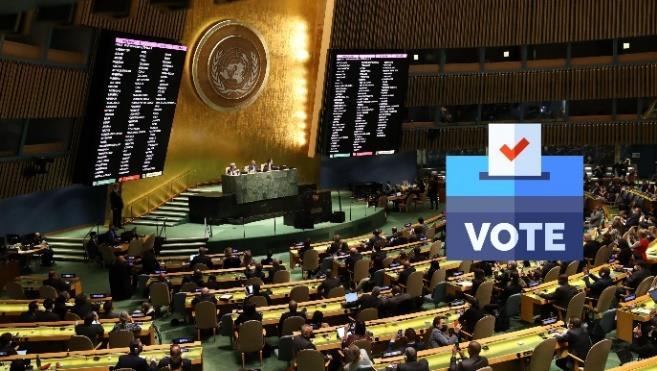

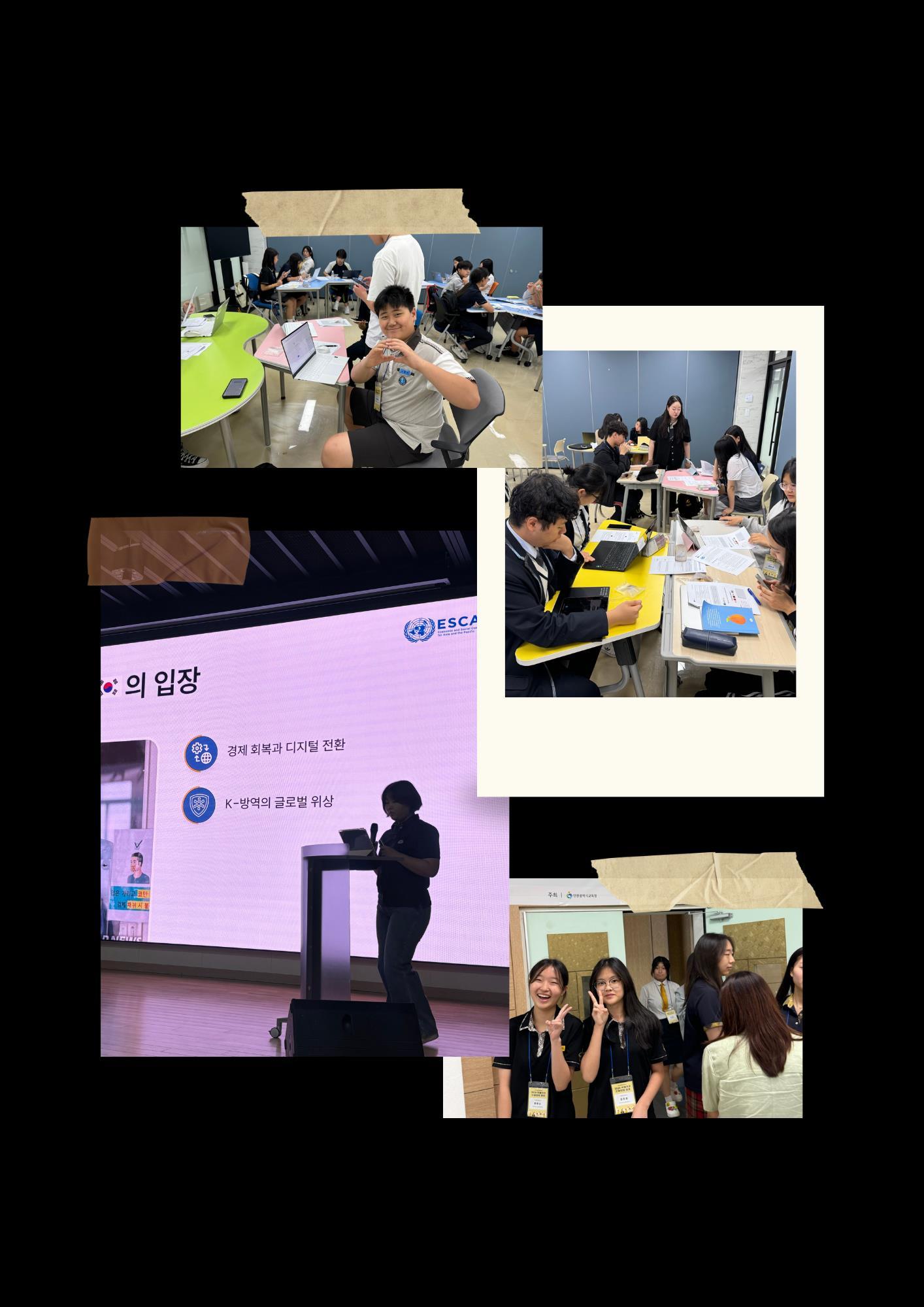

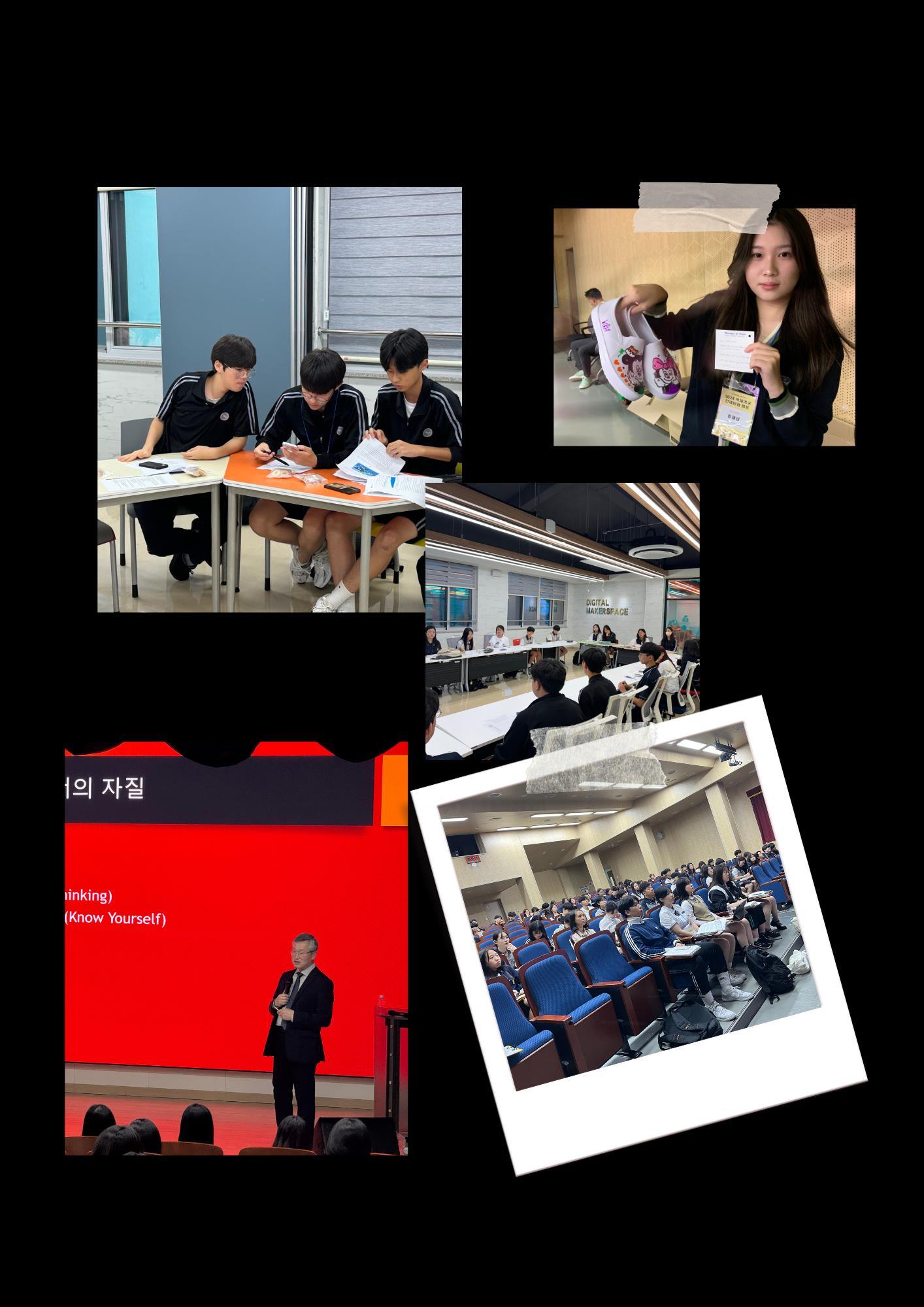
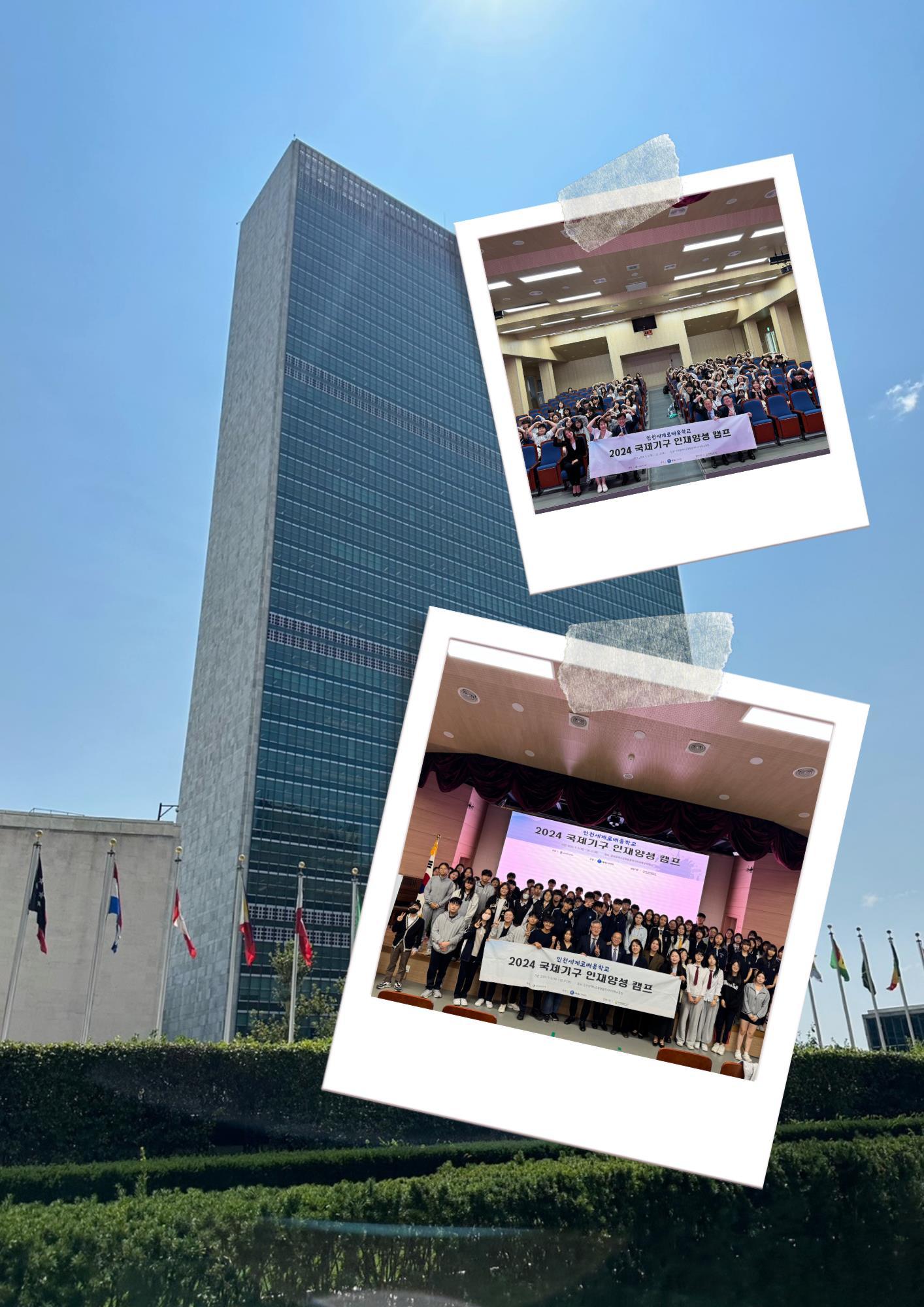
인천세계로배움학교
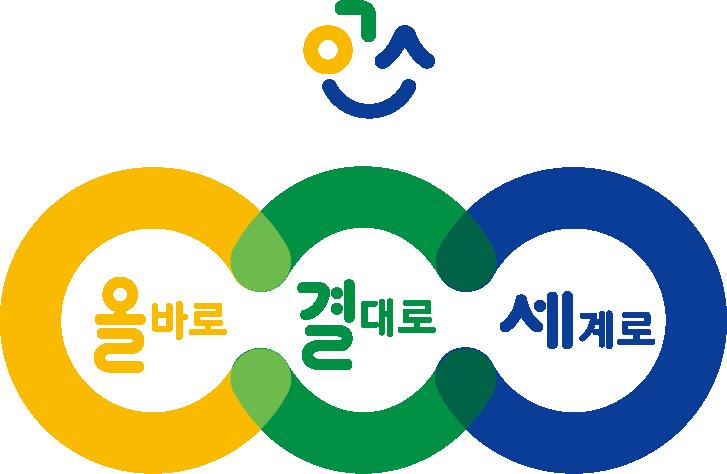
2024
인천광역시 중구 영종대로 277번길 118 Tel. 032-745-0223 Fax. 032-745-0233 https://iegi.go.kr